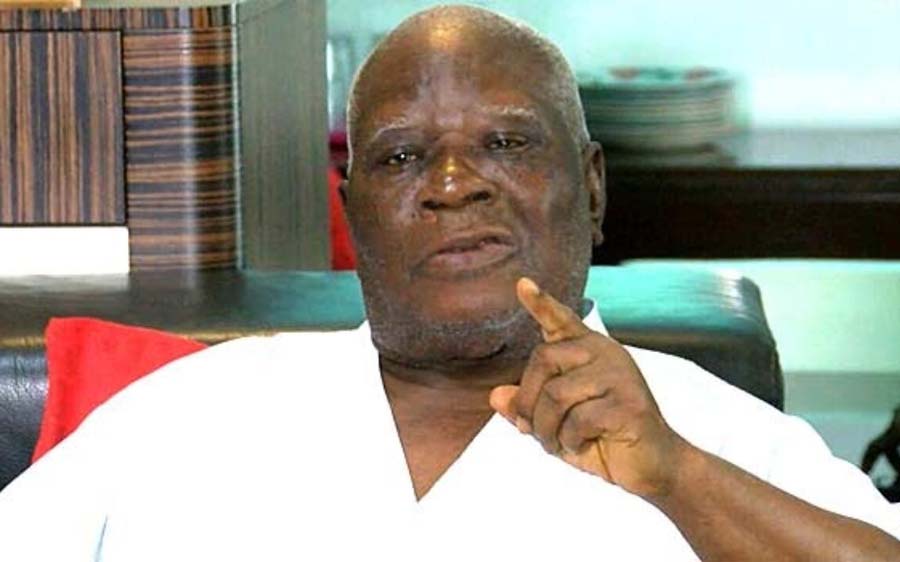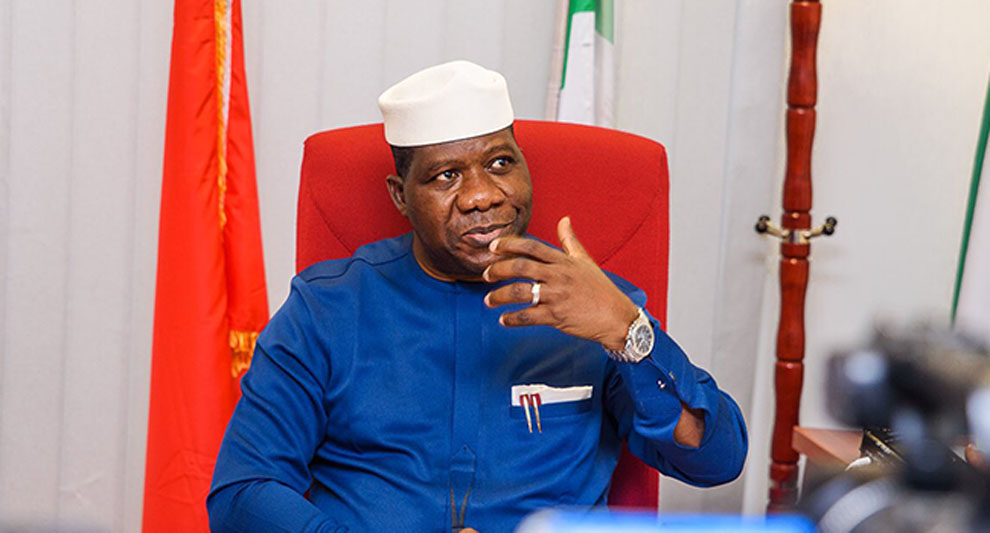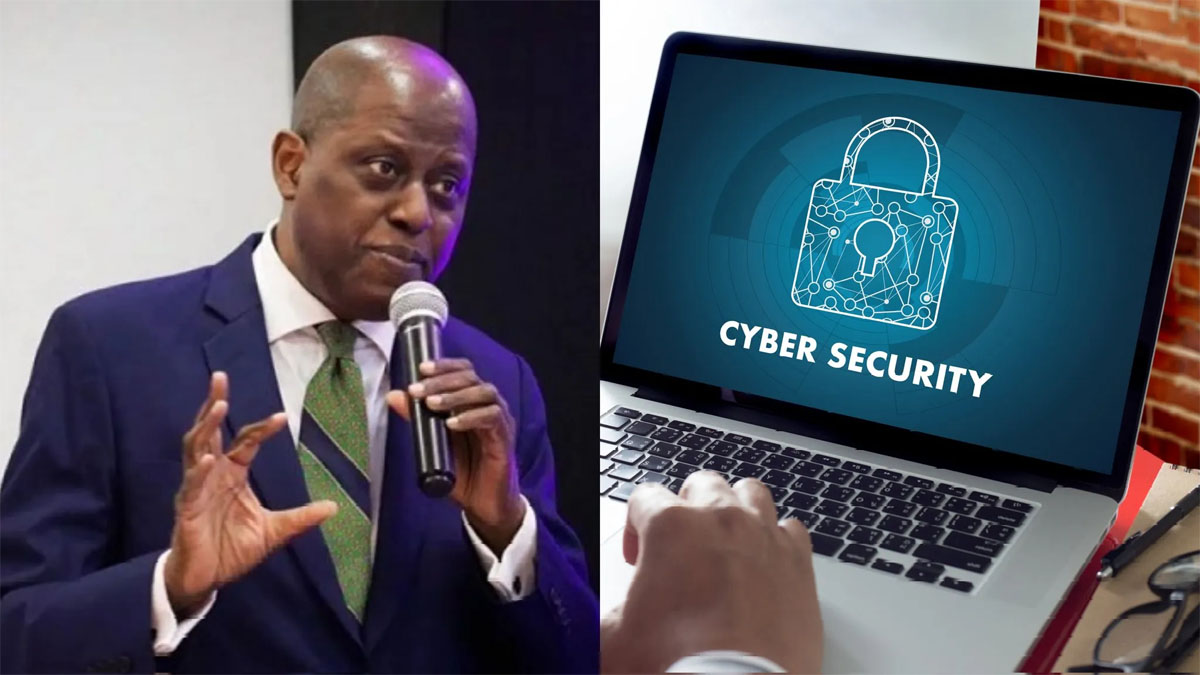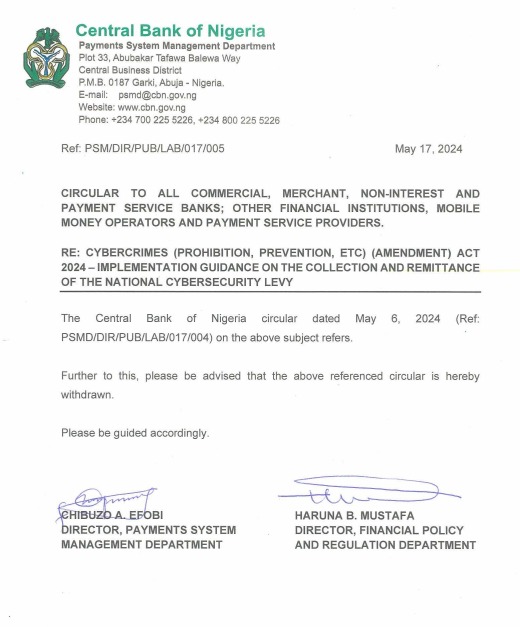News
MTN reacts as system glitch ‘cancels’ subscribers’ debts

MTN reacts as system glitch ‘cancels’ subscribers’ debts
Subscribers who had taken airtime or data loans from MTN may have to pay back the debt on their accounts as the initial debt cancellation was due to an error in MTN system, LEADERSHIP has reported.
This is even as subscribers, who believed the telecom operator deliberately cancelled their debts, have gone to social media to jubilate and appreciate the telecom company.
READ ALSO:
- Kogi: Man shot dead after allegedly snatching ballot box
- BREAKING: One killed in Bayelsa election violence
- We need to stop off-season elections, not best for Nigeria – Jonathan
For instance, a subscriber named Ada, wrote on her WhatsApp status, saying, “Debt has been paid. MTN debtors Check your account, MTN don clear una gbese.”
Meanwhile, a response from,an official of MTN, revealed that subscribers will still have to pay for their debts, adding that, “Users would still be responsible for paying the ostensibly cleared bills even after MTN fixes the problem that caused the debts to vanish from their accounts.”
He explained that the disappearance of debts in the subscribers’ accounts was a glitch, meaning that the subscribers will still have to pay the supposed cleared debts once MTN rectifies the error.
MTN reacts as system glitch ‘cancels’ subscribers’ debts
News
Don’t fuel Rivers crisis, Edwin Clark tells APC, PDP

Don’t fuel Rivers crisis, Edwin Clark tells APC, PDP
Leader of the Pan Niger Delta Forum (PANDEF), Edwin Clark, has warned against the two political parties fueling the crisis in Rivers State.
He also accused Minister of the Federal Capital Territory (FCT), Nyesom Wike, of sowing a seed of discord against Governor Sim Fubara of the state.
In a letter dated May 20, 2024, addressed to the chairmen of both the Peoples Democratic Party (PDP) and All Progressives Congress (APC), Clark expressed concerns about the crisis.
He stated, “As a patriotic old statesman, I strongly believe that I should address this letter to you to call to order FCT Minister, Chief Nyesom Wike, because he is dancing naked in the open market in the politics of madness in Rivers State with one leg each in the two parties.”
READ ALSO:
- Tragic moose attack claims life of photographer in Homer, Alaska
- Insecurity: How to make state police effective, by Senate leader
- 78 suspected internet fraudsters arrested in Enugu, Imo
Clark highlighted Wike’s alleged control over both the PDP and APC in the state, urging action to prevent further political turmoil.
He emphasized the importance of stability in Rivers State, a significant contributor to the nation’s economy due to its oil resources and the presence of International Oil Companies (IOCs) and the Onne deep seaport.
He further said, “I strongly advise both of you to withdraw from the madness of politics of Rivers State to avoid the dangerous crisis facing Rivers State, one of the most important states producing the resources used to sustain the economy of this country.”
Clark condemned the Federal Government and the political parties’ inaction in the face of disruption in Rivers State.
Don’t fuel Rivers crisis, Edwin Clark tells APC, PDP
News
Insecurity: How to make state police effective, by Senate leader

Insecurity: How to make state police effective, by Senate leader
Senate leader, Opeyemi Bamidele, has said that the establishment of state police will go a long way to addressing the insecurity across the country.
Bamidele, who stated this in Abuja on Monday in a statement issued by his media office described the current state of policing in Nigeria as “ailing and dysfunctional.”
The statement read in part, “We must admit that the system can no longer guarantee the dignity of human lives and the security of collective assets considering our security dynamics in the Fourth Republic.
“The proposal for the creation of state police has been a subject of intense debate in the last decade or more.
“This, in part, can be attributed to the rise of armed attacks orchestrated by diverse interests either pursuing divisive agendas or seeking predatory ends in virtually all geopolitical zones,” he said.
He noted that Nigeria, one of the world’s fastest-growing nations in terms of population, could not continue to operate a centralised policing system.
READ ALSO:
- 78 suspected internet fraudsters arrested in Enugu, Imo
- Kano mosque attack: Principal suspect pleads guilty, remanded
- Naira gains marginally at N1,490/$ on parallel market
“Such a policing model cannot meaningfully address existential threats to our internal cohesion and stability. Unlike in 1979, when we had a population of 70.75 million, Nigeria is now a federation of about 229 million people and is currently the world’s sixth-biggest country.
“This is as shown in the demographic data of the United Nations. Contrarily, as revealed in the recent presentation of the Inspector-General of Police, Kayode Egbetokun, Nigeria has a police-citizen ratio of one to 650.
“This ratio is a far cry from a ratio of one to 460, which, according to the United Nations, is a minimum requirement for every sovereign state or territory worldwide,” the Senate leader said.
The lawmaker further noted that the ongoing review of the 1999 Constitution would allow stakeholders to interrogate the nation’s security framework and take a position on the desirability or otherwise of state police in the country.
“We must go about it (state police) with a clear sense of self-realisation. We must, first and foremost, realise that the present police system is ailing and dysfunctional.
“We must also admit that the system can no longer guarantee the dignity of human lives or the security of collective assets.
“With this admission, it is evident that the option of adopting state police is no doubt inevitable as an antidote to the diverse security challenges that threaten us as a federation,” he said.
The Senate leader further said that as the debate for a more efficient police model continued, the National Assembly was under obligation to provide a legal framework with clearly defined preconditions.
“Sub-national governments must conform to the preconditions before establishing their policing formation. The role of all 36 state Houses of Assembly is equally indispensable in the quest to adopt the decentralised police system,” he said.
The bill for the establishment of the state police is currently in the National Assembly. In February, the House of Representatives passed the bill for the second reading.
The bill, sponsored by the Deputy Speaker of the House, Benjamin Kalu and 14 others, seeks to alter the relevant Sections of the 1999 Constitution to pave the way for states to establish their policing outfits.
Insecurity: How to make state police effective, by Senate leader
Punch
News
CBN in U-turn withdraws cybersecurity levy

CBN in U-turn withdraws cybersecurity levy
The Central Bank of Nigeria (CBN) has withdrawn the circular it issued to all commercial banks on May 6, 2024, directing them to implement a compulsory withdrawal of 0.05 per cent from every electronic transaction as cybersecurity levy.
 The controversial directive for collection of the levy had attracted nationwide condemnation when the central bank introduced the policy last week, prompting the Presidency to immediately suspend the implementation of the Cybersecurity Levy.
The controversial directive for collection of the levy had attracted nationwide condemnation when the central bank introduced the policy last week, prompting the Presidency to immediately suspend the implementation of the Cybersecurity Levy.
READ ALSO:
- Gunmen invade Ebonyi village, behead 2, kidnap 7, raze houses
- Mother locks up her two toddlers in Lagos apartment daily, disappears
- Iran’s President Raisi confirmed dead in helicopter crash
In a withdrawal circular that was issued by the CBN on Sunday night, it directed the banks not to go ahead with the initial directive, in line with the presidential directive. The apex bank authorities claimed it’s a sign that the present administration was a listening one that prioritises public good.
“Further to this, please be advised that the above referenced circular is hereby withdrawn,” CBN director in charge of payments system, Chibuzo Efobi, and the director, financial policy and regulation, Haruna Mustapha, said in the circular, adding that all banks should “Please be guided accordingly.”
CBN in U-turn withdraws cybersecurity levy
-

 Sports2 days ago
Sports2 days agoFlamingos thrash Burkinabe Girls 6-0 in U-17 World Cup qualifier
-

 News3 days ago
News3 days agoNigeria will stop fuel importation by June – Dangote
-

 Africa2 days ago
Africa2 days agoArmy foils coup to topple DR Congo president
-

 metro1 day ago
metro1 day agoHealth worker stabbed to death in Minna
-

 metro3 days ago
metro3 days agoBreaking: Women protest against return of armed Okuama youths (+ Photos)
-

 Education2 days ago
Education2 days agoWigwe varsity becomes most expensive Nigerian university, unseats Nile, Baze
-

 International2 days ago
International2 days agoJUST IN: Helicopter carrying Iran’s president crash-lands
-

 Sports1 day ago
Sports1 day agoWAFU U-17: 10-man Golden Eaglets defeat Niger 1-0




















